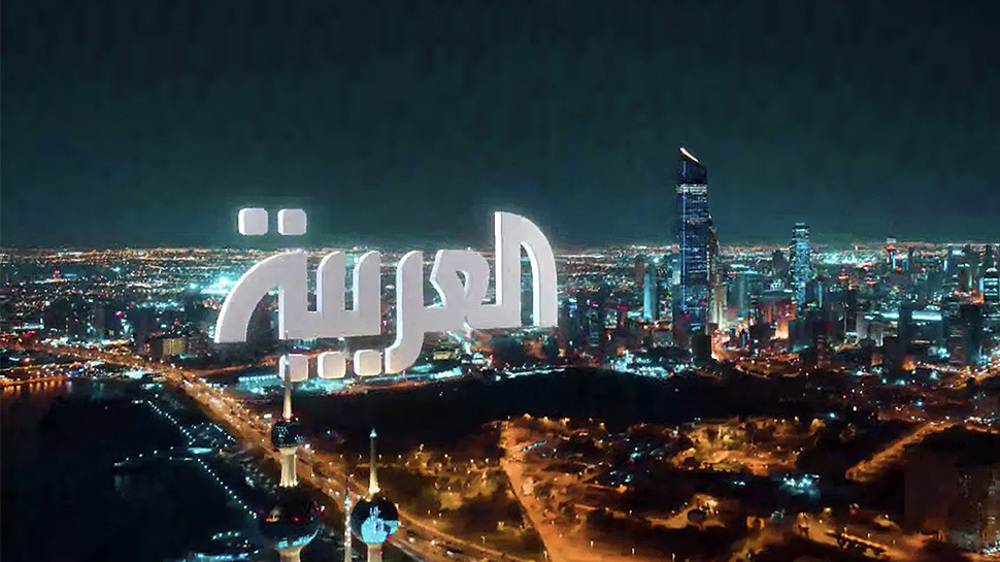AhlulBayt News Agency: Saudi Arabia’s state-owned al-Arabiya news channel is cooperating directly with the Israeli army towards polishing the image of the Israeli regime amid its ongoing genocidal war on the Gaza Strip, a report says.
The regime’s KAN public broadcaster aired the report, saying the channel was trying to redeem the regime’s image by using pro-Israeli expressions and avoiding vocabulary that reflected the enormity of Tel Aviv’s atrocities in its coverage of the war.
The bias was evident in the headlines and breaking news content that were being broadcast by the channel, it added.
The channel has been using the word “killed” instead of “martyred” for the Palestinian fatalities of the war, while referring to the occupation and the Zionist entity as “Israel” and the occupation army as the “Israeli army.”
In July, when the regime massacred at least 90 people at the al-Mawasi refugee camp in southern Gaza, the channel did not mention the Palestinian death toll. It focused instead on the regime’s claim that the strike had targeted the Palestinian resistance group Hamas’ military leader, Mohammed Deif.
The channel has also been identifying Hamas as only the “Hamas movement” or “Hamas organization,” and describing Israeli captives as “hostages.”
In exchange for the positive coverage, the channel receives exclusive information such as breaking news details from the Israeli army, the report noted.
Citing an example of the cooperation between al-Arabiya and the army, the report mentioned the case of the regime’s assassination of Khalil Maqdah, a brigadier general in the armed wing of the Palestinian movement Fatah, in August.
It said the channel reported that Maqdah was the target of the strike even before those on the ground could identify him, saying this would only be possible if the Israeli military had provided information to the channel in advance.
Also in August, al-Arabiya reached Daniel Hagari, spokesman for the Israeli military, allowing him to throw accusations against the Lebanese resistance movement Hezbollah of “exploiting the Lebanese people.”
In 2020, the channel appeared to be sympathetic of the United States-brokered rapprochement agreements that were signed between the Israeli regime and the United Arab Emirates and Bahrain.
During the Daesh Takfiri terror group’s invasion of the northern Iraqi city of Mosul in 2014, al-Arabiya refused to define the outfit’s members as terrorists, identifying them instead as “tribal revolutionaries.”
/129
The regime’s KAN public broadcaster aired the report, saying the channel was trying to redeem the regime’s image by using pro-Israeli expressions and avoiding vocabulary that reflected the enormity of Tel Aviv’s atrocities in its coverage of the war.
The bias was evident in the headlines and breaking news content that were being broadcast by the channel, it added.
The channel has been using the word “killed” instead of “martyred” for the Palestinian fatalities of the war, while referring to the occupation and the Zionist entity as “Israel” and the occupation army as the “Israeli army.”
In July, when the regime massacred at least 90 people at the al-Mawasi refugee camp in southern Gaza, the channel did not mention the Palestinian death toll. It focused instead on the regime’s claim that the strike had targeted the Palestinian resistance group Hamas’ military leader, Mohammed Deif.
The channel has also been identifying Hamas as only the “Hamas movement” or “Hamas organization,” and describing Israeli captives as “hostages.”
In exchange for the positive coverage, the channel receives exclusive information such as breaking news details from the Israeli army, the report noted.
Citing an example of the cooperation between al-Arabiya and the army, the report mentioned the case of the regime’s assassination of Khalil Maqdah, a brigadier general in the armed wing of the Palestinian movement Fatah, in August.
It said the channel reported that Maqdah was the target of the strike even before those on the ground could identify him, saying this would only be possible if the Israeli military had provided information to the channel in advance.
Also in August, al-Arabiya reached Daniel Hagari, spokesman for the Israeli military, allowing him to throw accusations against the Lebanese resistance movement Hezbollah of “exploiting the Lebanese people.”
In 2020, the channel appeared to be sympathetic of the United States-brokered rapprochement agreements that were signed between the Israeli regime and the United Arab Emirates and Bahrain.
During the Daesh Takfiri terror group’s invasion of the northern Iraqi city of Mosul in 2014, al-Arabiya refused to define the outfit’s members as terrorists, identifying them instead as “tribal revolutionaries.”
/129

